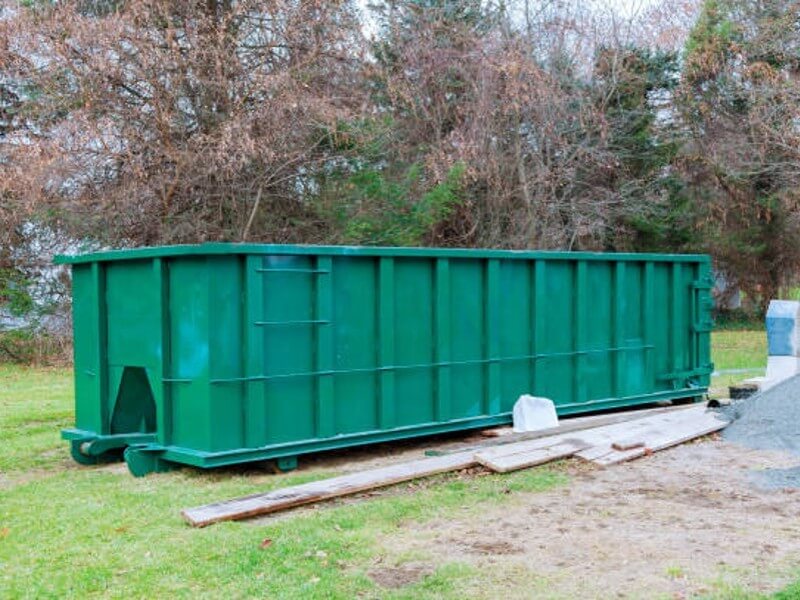The Impact of Seasonal Changes on the Dumpster Rental Industry
Demand Changes Across Seasons in the Dumpster Rental Industry
In the dumpster rental industry, understanding the rhythm of demand changes is crucial. It’s a known fact: different seasons bring varied levels of business.
Peak Rental Periods: Identifying High-Demand Seasons
Spring and summer are notorious for home renovations, community clean-ups, and construction projects. As the days grow longer and the weather becomes more cooperative, people eagerly undertake projects they’ve been planning during the colder months. This surge in activities results in:
- Increased demand for roll-off dumpsters for debris removal.
- Shorter rental durations due to the favorable weather.
- A rush to book dumpsters in advance, ensuring availability.
On the other hand, autumn, with its cooler temperatures, sees an increase in yard clean-ups and preparation for the winter months. In regions where fall is prominent, leaves, branches, and other yard waste might fill dumpsters more than usual.
Off-Season: Navigating Slower Rental Months
Winter often signifies a slowdown for the dumpster rental industry. With shorter days and unpredictable weather patterns, construction and renovation projects tend to decrease. But this isn’t a period to simply hibernate and await the bustling spring. During these quieter months:
- Inventory assessments can be carried out, ensuring all dumpsters are in tip-top shape.
- Businesses might offer special winter discounts to encourage rentals.
- It’s the perfect time to engage in training sessions for new employees, preparing them for the busier months ahead.
Recognizing these patterns and planning accordingly ensures a smoother operation and steady income throughout the year.

Operational Challenges Due to Seasonal Changes in the Roll-Off Dumpster Industry
Succeeding in the dumpster rental industry requires more than just understanding demand patterns. Operational challenges, often intensified by seasonal changes, need to be addressed proactively to maintain efficiency and customer satisfaction.
Equipment Wear and Tear
Each season comes with its own set of weather challenges:
- Summer: The heat can cause wear on dumpster materials, especially if they are frequently loaded with heavy, abrasive materials.
- Winter: Cold weather might lead to the metal of the dumpsters contracting, making them more susceptible to damage when loaded. Plus, snow and ice can accumulate, making it harder to access or move the dumpsters.
- Rainy Seasons: Prolonged exposure to rain can lead to rust, especially if the dumpsters aren’t well-maintained or are made of less durable materials.
Logistics and Transportation
Weather conditions can have a direct impact on transportation:
- Road conditions in winter can make it challenging to deliver or pick up dumpsters on time.
- Rain can lead to slippery roads, requiring drivers to be extra cautious.
- Summer, although generally easier, can see traffic spikes due to construction projects, potentially causing delays.
Workforce Management
The changing demand means the workforce needs to be managed efficiently:
- During peak seasons, there might be a need for extra hands on deck. This could mean hiring temporary staff or increasing work hours.
- Slower months might see reduced hours for some staff, or it might be the ideal time for vacations.
Customer Expectations
Regardless of the season, customers expect timely service. However:
- Cold or wet weather might lead to rescheduled deliveries or pickups, requiring businesses to communicate effectively with clients.
- Peak seasons might see longer waiting times, which need to be communicated transparently to avoid customer dissatisfaction.
Adapting to these operational challenges, understanding them, and preparing in advance can ensure that the dumpster rental business remains robust and responsive, regardless of the season’s quirks.

Seasonal Marketing in the Dumpster Rental Industry
In the dumpster rental business, just as trees shed leaves or flowers bloom according to the season, marketing strategies too need to adapt to the changing times. The fluctuation in demand is not only because of construction projects or home renovations but also due to the influence of various seasons on human behavior and needs. A tailored marketing approach can ensure steady demand, even during traditionally slower periods.
Recognizing High-Demand Periods
Firstly, it’s vital to identify when the demand peaks:
- Spring: With the snow melting away, spring is a popular time for home cleanouts, garden makeovers, and small construction projects. It’s the season of renewal and new beginnings.
- Summer: The warm months are prime for home constructions, major renovations, and community events – all requiring dumpsters.
- Fall: While not as busy as spring or summer, some households might initiate projects before winter sets in.
Crafting Seasonal Promotions
Tailored promotions can entice customers:
- Discounts: Offering seasonal discounts, especially during slower months, can incentivize bookings.
- Bundled Services: During peak construction months, bundling dumpster rentals with other services, such as junk removal, can attract larger projects.
Leveraging Holidays and Events
Special occasions can be marketing goldmines:
- Spring Cleaning Packages: Encourage households to embark on their spring cleaning journey with special packages or discounted rates.
- Community Cleanups: During Earth Day or other environmental events, collaborate with local communities for cleanup projects.
- End-of-Year Promos: Offer promotions for post-holiday clean-ups or end-of-year construction site clear-outs.
Engaging Content Creation
Create content that resonates with the season:
- Blog Posts: Share tips on preparing homes for winter, spring cleaning checklists, or summer renovation ideas.
- Social Media Campaigns: Use platforms like Instagram or Facebook to showcase recent projects, customer testimonials, or share behind-the-scenes glimpses during busy seasons.
Referral Programs
Considering the seasonal nature of the industry, word of mouth can be potent. Encourage satisfied customers to refer friends or neighbors, especially during peak seasons. A simple discount or a small free service can be offered as a thank-you gesture for referrals.
In the end, seasonal marketing isn’t just about chasing the demand but creating it. By understanding customer behavior, needs, and the influence of seasons, the dumpster rental industry can ensure consistent bookings and maintain a strong presence throughout the year.
Adapting Business Operations to Seasonal Changes in the Roll-Off Industry
Adapting to the seasons isn’t just about marketing; it’s about ensuring the entire operation of the dumpster rental business is prepared for the flux of demand and the various challenges each season brings. Adapting operations to fit the seasonal mold can not only maintain a smooth workflow but also bolster customer satisfaction and overall efficiency.
Equipment Maintenance and Preparation
Each season presents unique challenges to the equipment:
- Winter: Cold temperatures can affect the machinery. It’s crucial to winterize equipment, ensuring hydraulic fluids are appropriate for colder temperatures and tires have proper traction.
- Summer: Overheating can become a concern. Regular checks on the engine, coolant systems, and general wear and tear are essential.
Inventory Management
Being prepared for seasonal demands is essential:
- Peak Seasons: Stock up on commonly rented dumpster sizes during high-demand periods like spring and summer.
- Slower Periods: Use the quieter times for equipment maintenance, inventory checks, and staff training.
Flexible Staffing
Labor demands can fluctuate with the seasons:
- Hiring Seasonal Workers: During busier periods, consider hiring temporary staff to manage increased demand.
- Training and Workshops: Utilize slower seasons for staff training, workshops, and team-building activities.
Diversifying Services
Having a range of services can balance the seasonal load:
- Junk Removal: Offer junk removal services, which might be in demand when dumpster rentals slow down.
- Recycling Services: During seasons when environmental consciousness peaks, offer specialized recycling services.
Safety Protocols
Seasonal changes can impact safety:
- Rainy and Snowy Seasons: Wet conditions can make operations slippery. Ensure that all equipment is fitted with non-slip surfaces and that staff are trained to handle equipment safely in these conditions.
- Hot Seasons: Staff should be aware of heat stroke symptoms and be encouraged to take breaks and stay hydrated.
Feedback and Improvement
End of each season is a time for reflection:
- Gather feedback from customers and staff to identify what went well and what challenges arose.
- Use this feedback to make operational changes for the next year.
In the dumpster rental industry, being static is not an option. Each season brings its own set of demands and challenges. By proactively adapting business operations to these changes, a business can ensure it not only survives but thrives throughout the year, irrespective of the season.

Embracing the Seasonal Shifts in the Roll-Off Industry
The dumpster rental industry, like many other businesses, feels the rhythm of the seasons. From operational challenges to dynamic marketing strategies, seasonal changes undoubtedly leave their mark. However, by recognizing these patterns and adapting proactively, businesses can harness the potential of each season to its fullest. By preparing equipment, managing inventory wisely, adjusting staffing, and diversifying services, a roll-off dumpster business can weather any seasonal storm and continue to provide unparalleled service to its clientele. The key is to embrace the change, innovate, and always keep an eye on the horizon for the next opportunity.
FAQs about Seasonal Changes in the Roll-Off Dumpster Industry
1. How does the impact of seasonal changes on the dumpster rental industry differ from other industries?
While many industries experience seasonal variations, the dumpster rental industry often sees spikes in demand during home renovation seasons and lulls during extreme weather conditions. The nature of projects that require dumpsters largely dictates these fluctuations.
2. What is the best time of year to invest in marketing for a roll-off dumpster business?
Although it’s crucial to maintain a consistent marketing presence throughout the year, ramping up efforts just before peak seasons, such as spring and early summer (renovation season), can yield optimal results.
3. How can businesses forecast the impact of upcoming seasonal changes on their operations?
By analyzing historical data, keeping an eye on industry trends, and understanding local events or construction projects, businesses can make educated predictions about potential demand surges or drops.
4. Are there any tools or software that help dumpster rental businesses adapt to seasonal changes?
Yes, various business management and forecasting tools can help dumpster rental businesses anticipate demand, manage inventory, and allocate resources efficiently during different seasons.
5. Can diversifying services help in mitigating the challenges of seasonal changes?
Absolutely. Offering a range of services, such as junk removal or recycling, can help businesses maintain steady operations and cash flow even during off-peak dumpster rental seasons.


